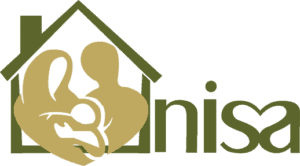Gabby Petito, a bright, young, energetic, social media influencer, and a victim of domestic violence which eventually led to her death allegedly by her fiancé. Why didn’t she leave the abusive relationship? Why couldn’t anyone help her? According to the Centers for Disease Control and Prevention, on average, 24 people per minute are victims of abuse by an intimate partner in the United States. Over the course of a year, that equals more than 12 million women and men. Covid-19 has exacerbated this public health problem as calls to domestic hotlines have increased manifold, so the numbers may increase. Yet, the United Nations confirms that many survivors have limited information and awareness about available resources and limited access to support services.
Domestic violence plagues every community- regardless of age, race, socioeconomic status, religion, culture, and gender. It impacts our elderly, our children, our women, our men, and our economy. We are in a dire situation as the negative effects of domestic violence affect society at large, victims of intimate partner violence lose a total of 8 million days of paid work each year, per the National Coalition Against Domestic Violence Organization. Children living in abusive households have a higher chance of being in abusive relationships as either the oppressor or the victim and/or may have adverse health issues because of the trauma later in life. Survivors may also experience PTSD, depression, anxiety attacks, suicidal ideation, physical ailments, lack of energy, self-hate, and low confidence, amongst many other physical and emotional problems. So, what can we do to help the Gabbys of the world? Raising awareness is one way for individuals to recognize the abusive patterns that they or their loved ones may experience, but we can do more!
The House of Representatives has recently introduced a new bill to help survivors gain accessible services for domestic violence, dating violence, and family violence. The H.R. 2119 bill seeks to improve the Family Violence Prevention and Services Act to make services, such as the national domestic violence hotline, more accessible to survivors. The bill also offers more resources and funding to survivors through research, culturally competent programs, and services. Congresswoman Gwen Moore of Wisconsin, who is in support of the bill, explains that survivors of domestic violence trying to build a new life for themselves need resources that will keep them and their children safe. Ensuring survivors can receive access to emergency shelters, counseling, court assistance, transitional housing, and more community programs is vital to the growth, health, and well-being of survivors.
Gabby Petito stayed in the abusive relationship perhaps because she was gaslit so much that she did not understand her circumstances and/or perhaps she did not know where to turn to for help. We can help many survivors who are still in Gabby’s shoes not only recognize the signs of abuse so that they have the opportunity to get help before it is too late but also have many services and programs for them to heal so they can lead productive and healthy lives. October is National Domestic Violence Month, wear purple in support of victims and survivors, spread the word to your family and friends, and call your representatives to support the H.R. 2119: Family Violence Prevention and Services Improvement Act of 2021. You have the power to save lives!
Anna McKeown is a Recreation Therapist within the prison system and a graduate student at USC. Malalai Olomi is a Domestic Violence Counselor.


